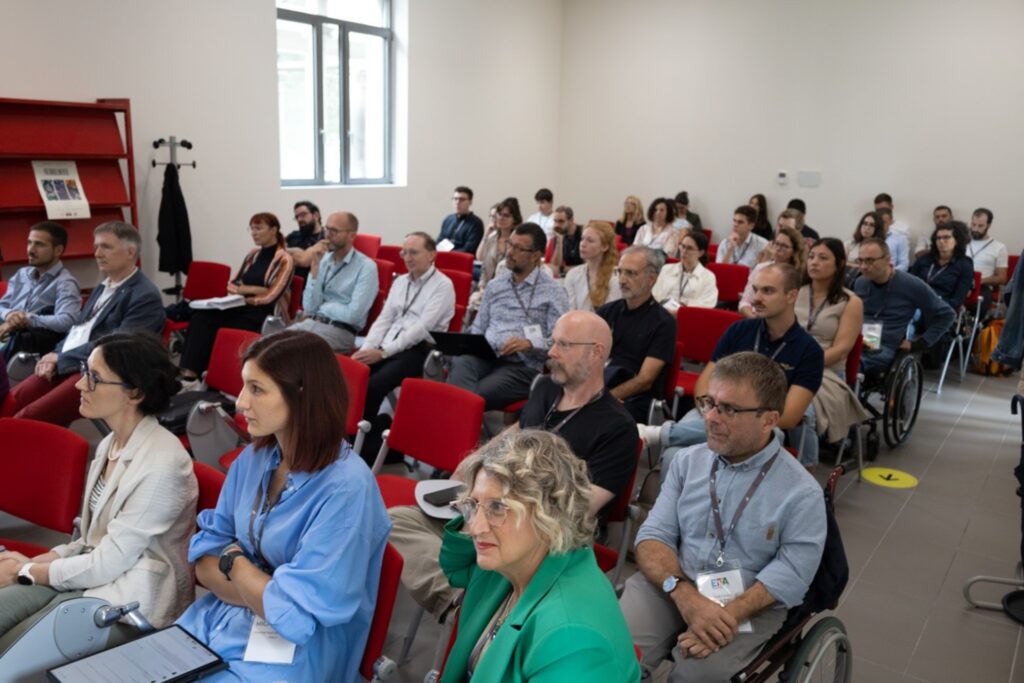About the third Industrial Electronics Society Diversity, Equity and Inclusion (DEI) Workshop at ETFA2024
The third Industrial Electronics Society Diversity, Equity and Inclusion (DEI) Workshop was held at ETFA2024 on the 12 September 2024 in Padova, Italy.
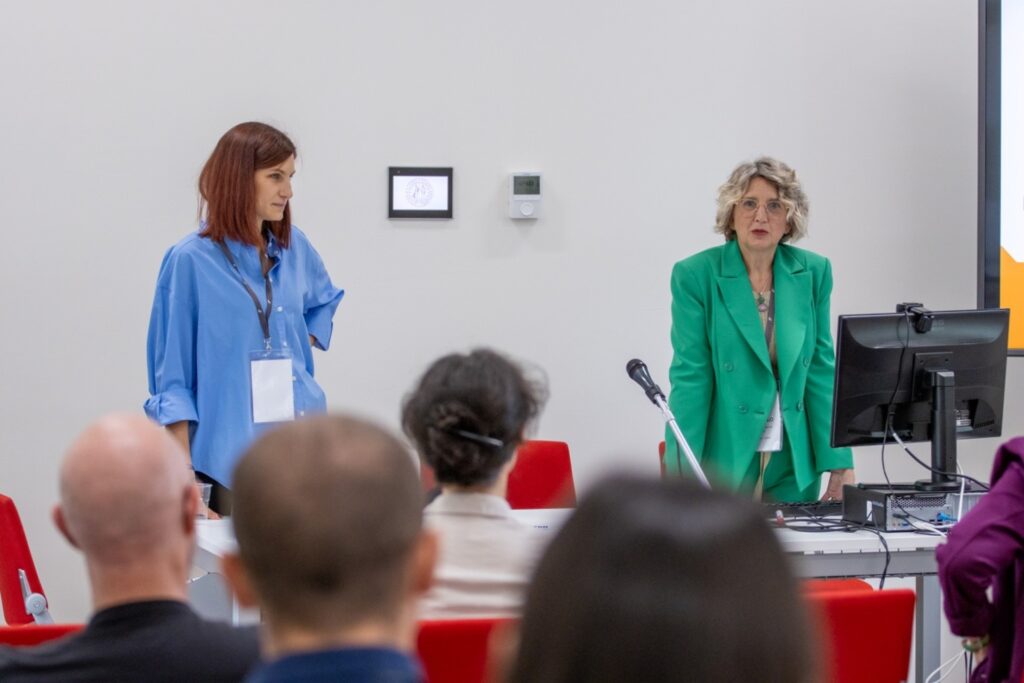
The event was organized and chaired by Prof. Lucia Lo Bello from the University of Catania, the Chair of the IES Subcommittee on Diversity, Equity and Inclusion, and by Prof. Giulia Michieletto, IES WiE Ambassador in Italy.
Two invited speakers, both from industry, shared with the audience their personal experience and the best practices to improve on DEI in the workplace.
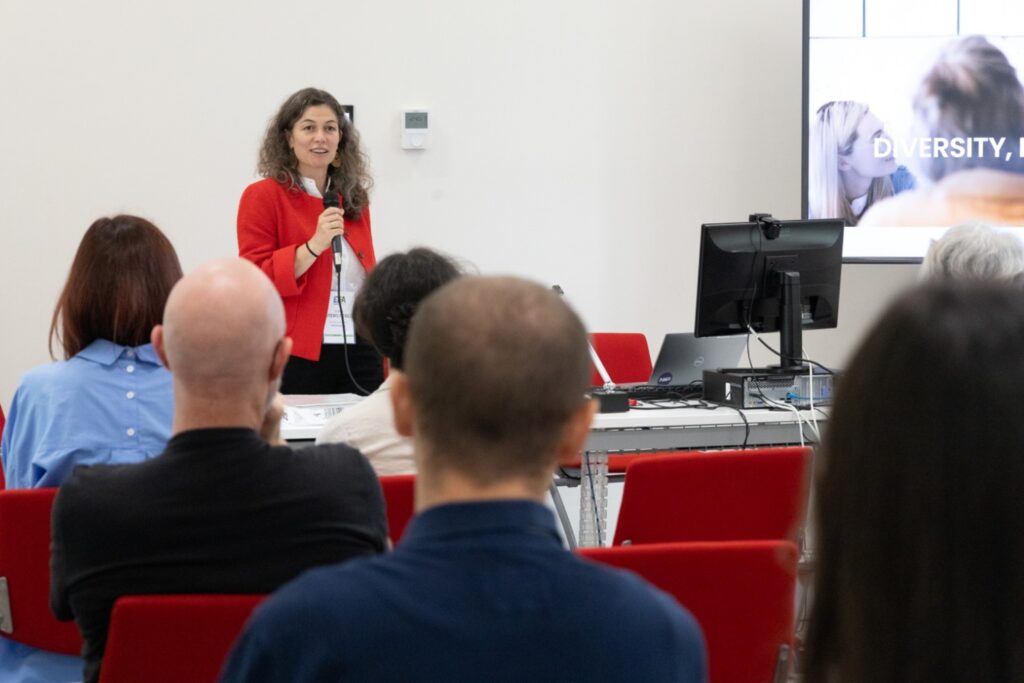
In particular, Dr. Clara Otero Perez, Senior Director of System Marketing from NXP Semiconductors, Netherlands, shared with the audience her personal experience and described the very interesting initiatives offered by NXP to their employees to improve on inclusion. Among them, optional courses to learn about the customs and traditions of the various ethnicities, which favour the integration of underrepresented groups based on the mutual respect of each other’s cultures.
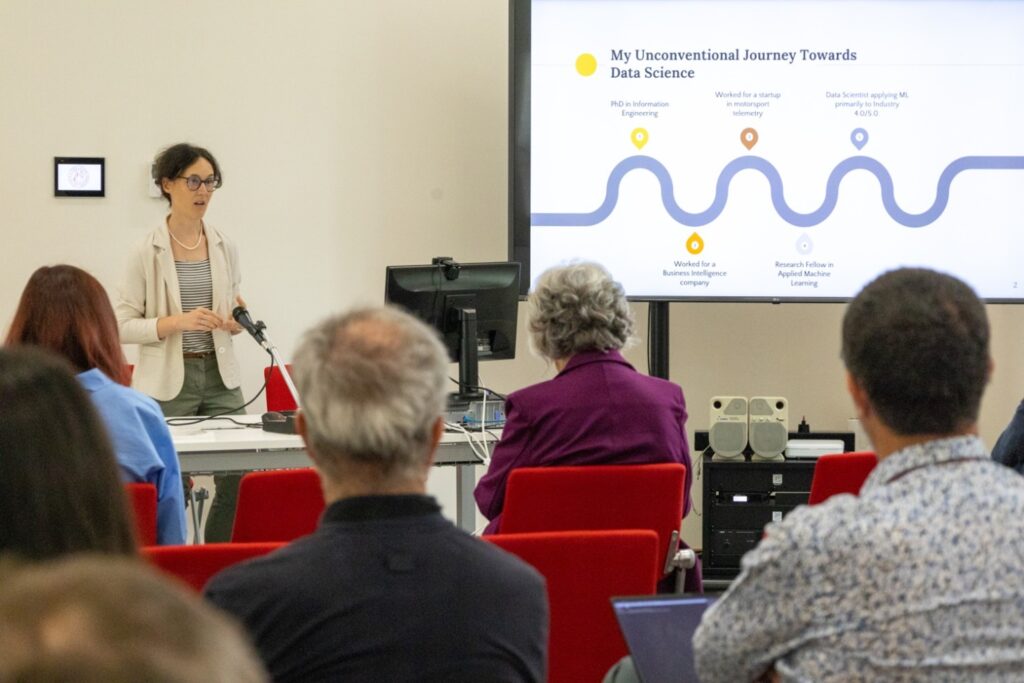
Next, Dr. Chiara Masiero, Senior Data Scientist and Lead R&D Scientist from Statwolf Data Science, Italy shared with the audience some of the common bias that nowadays are fed into AI due to the use of incomplete datasets that do not come from diverse communities and therefore only reflect the partial view of a few. Chiara also shared some stories about her “unconventional journey” towards data science and her personal experience as a woman in Information Engineering.
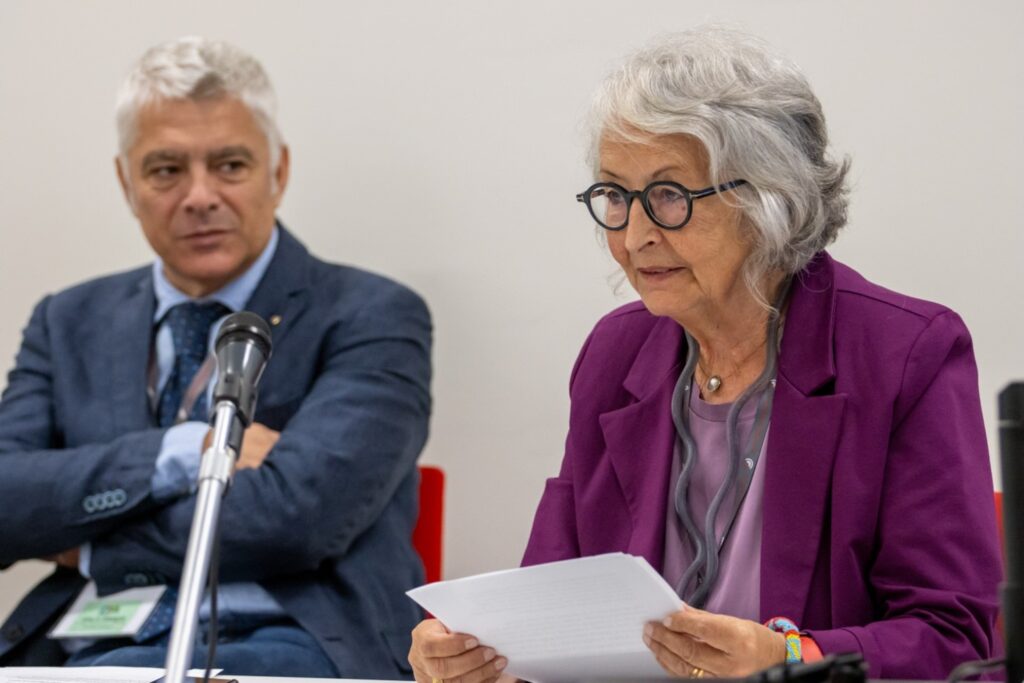
The workshop also included a round table, moderated by prof. Lucia Lo Bello and Prof. Giulia Michieletto, with a diverse pool of panelists, i.e., Prof. Roberto Oboe and Prof. Silvana Badaloni, both from the University of Padova, Italy, Dr. Clara Otero Perez and Dr. Chiara Masiero. Prof. Oboe discussed about the limited number of female students that select Engineering courses, while Prof. Silvana Badaloni provided an historical perspective on the female representation in Engineering from the past up to the current times. The panel also discussed the controversial issue of “quotas for women”, analysing pros and cons, and finally outlined further opportunities to improve on DEI. The discussion was very lively and the audience actively participated.
